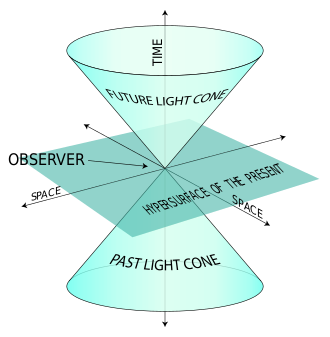Present
Overview
The Present World refers to the current state of the Earth and its society, encompassing the environment, technology, economy, and culture as they exist today. This concept is often used in contrast to the past and future worlds, highlighting the unique characteristics and challenges of the contemporary era.
Environmental Aspects
The present world is marked by significant environmental challenges, including climate change, biodiversity loss, and pollution. These issues are the result of both natural processes and human activities, such as industrialization and deforestation. Efforts to address these challenges include international agreements like the Paris Agreement and initiatives to promote sustainability and renewable energy.
Technological Advancements
In the present world, technology plays a crucial role in shaping daily life and global interactions. The rapid advancement of information technology, including the internet and smartphones, has transformed communication, commerce, and education. Emerging technologies such as artificial intelligence, biotechnology, and quantum computing hold the potential to further revolutionize various sectors.
Economic Dynamics
The global economy in the present world is characterized by interconnectedness and complexity. Globalization has led to increased trade and investment across borders, while also raising concerns about economic inequality and labor rights. The COVID-19 pandemic has had a profound impact on the global economy, leading to shifts in supply chains and workplace practices.
Cultural Trends
Culturally, the present world is diverse and dynamic, with a rich tapestry of languages, religions, and traditions. The rise of social media has facilitated the spread of cultural ideas and movements, while also contributing to the phenomenon of globalization of culture. Issues such as cultural appropriation and identity politics are prominent in contemporary discourse.
Related Pages
Transform your life with W8MD's budget GLP-1 injections from $125.
W8MD offers a medical weight loss program to lose weight in Philadelphia. Our physician-supervised medical weight loss provides:
- Most insurances accepted or discounted self-pay rates. We will obtain insurance prior authorizations if needed.
- Generic GLP1 weight loss injections from $125 for the starting dose.
- Also offer prescription weight loss medications including Phentermine, Qsymia, Diethylpropion, Contrave etc.
NYC weight loss doctor appointments
Start your NYC weight loss journey today at our NYC medical weight loss and Philadelphia medical weight loss clinics.
- Call 718-946-5500 to lose weight in NYC or for medical weight loss in Philadelphia 215-676-2334.
- Tags:NYC medical weight loss, Philadelphia lose weight Zepbound NYC, Budget GLP1 weight loss injections, Wegovy Philadelphia, Wegovy NYC, Philadelphia medical weight loss, Brookly weight loss and Wegovy NYC
|
WikiMD's Wellness Encyclopedia |
| Let Food Be Thy Medicine Medicine Thy Food - Hippocrates |
Medical Disclaimer: WikiMD is not a substitute for professional medical advice. The information on WikiMD is provided as an information resource only, may be incorrect, outdated or misleading, and is not to be used or relied on for any diagnostic or treatment purposes. Please consult your health care provider before making any healthcare decisions or for guidance about a specific medical condition. WikiMD expressly disclaims responsibility, and shall have no liability, for any damages, loss, injury, or liability whatsoever suffered as a result of your reliance on the information contained in this site. By visiting this site you agree to the foregoing terms and conditions, which may from time to time be changed or supplemented by WikiMD. If you do not agree to the foregoing terms and conditions, you should not enter or use this site. See full disclaimer.
Credits:Most images are courtesy of Wikimedia commons, and templates, categories Wikipedia, licensed under CC BY SA or similar.
Contributors: Prab R. Tumpati, MD

